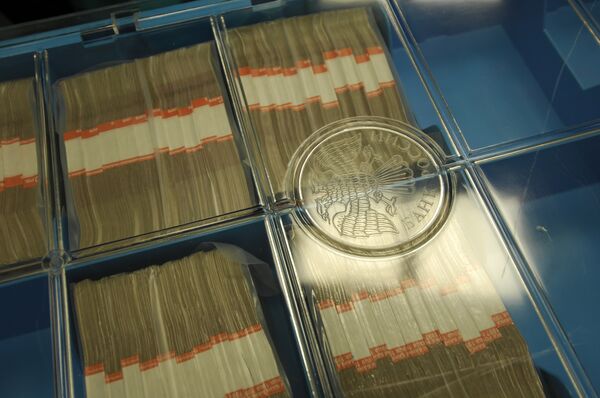KAZAN, September 17 (RIA Novosti) – A senior government official said Tuesday that Russia would implement a reform of retirement pension funding that would free up 350 billion rubles ($10.8 billion) for the state budget over the next three years.
Payments for state retirement pensions in Russia include two components dependent on salary and crucial for future pension size – the insurance component and the funded component.
Money from the former component goes to fund current pensions, but the government takes an obligation to pay this money back to the citizen once he or she hits retirement age. Money from the latter component actually goes into a citizen’s account in a retirement fund, which can invest the money on the citizen’s behalf.
Currently, the funded component amounts to 6 percent of retirement payments. By default, the money ends up in a retirement fund managed by the state-run Vnesheconombank, but citizens can transfer the money to another retirement fund.
But the funded component for people who keep their retirement funds in the Vnesheconombank will be slashed to zero percent starting next year, First Deputy Finance Minister Tatiana Nesterenko told journalists in Kazan.
Those who transferred the money to other retirement funds will still see 6 percent of their retirement payments actually end up in their retirement savings accounts, she added.
An earlier proposal to slash the funded component to 2 percent for Vnesheconombank users and 4 percent for the rest was discarded, Nesterenko said.
“The point is, if a person doesn’t want to have a funded component, there’s no point in giving them 2 percent, give them zero,” Deputy Finance Minister Alexei Moiseyev said Tuesday.
The new money distribution scheme is to be included in the upcoming draft of the state budget for 2014-2016, Nesterenko said.
Vnesheconombank manages about 75 percent of all pension savings by Russians born after 1967, government newspaper Rossiiskaya Gazeta said earlier this year.
The Russian government has recently announced plans to trim budget spending to offset the effects of the slowing economy. Military spending and salaries for state employees will both see cuts, and state-run monopolies such as Gazprom and Russian Railways face tariff freezes.


